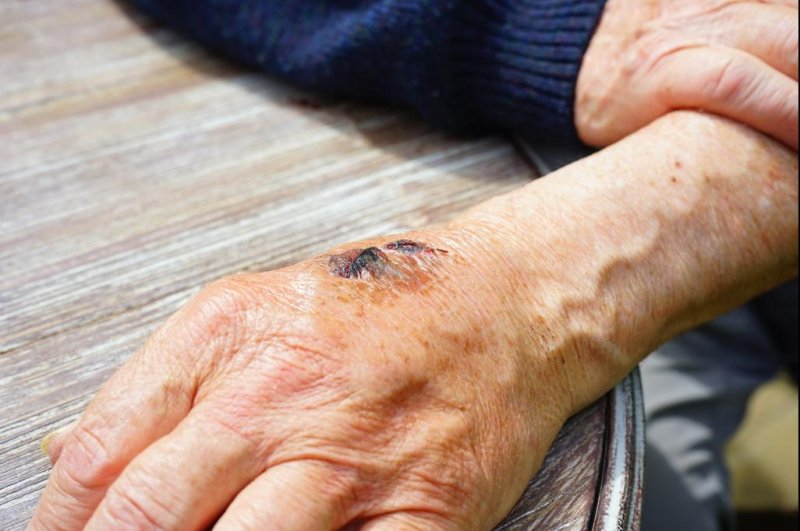Researchers found combining antiobiotics and probiotics eradicate two strains of drug-resistant bacteria that often infect wounds. Photo by
Hans/pixabay
Oct. 17 (UPI) -- By combining antibiotics and probiotics, researchers have developed a one-two punch to eradicate two strains of drug-resistant bacteria that often infect wounds, according to a preclinical study.
MIT researchers encapsulated probiotic bacteria in a protective shell of alginate, which is a biocompatible material that prevents the probiotics from being killed by the antibiotic. The findings were published Wednesday in the journal Advanced Materials.
Probiotics, which are good live bacteria and yeasts, help send food through the digestive system by affecting nerves that control gut movement. Probiotics come from supplements, as well as foods that are prepared by bacterial fermentation, including yogurt, kefir, sauerkraut, tempeh and kimchi.
Some of the trillions of bacterial cells can help fend off infection by secreting antimicrobial peptides and other compounds that kill pathogenic strains of bacteria. Also, they kill off harmful strains by taking up nutrients and other critical resources.
"There are so many bacteria now that are resistant to antibiotics, which is a serious problem for human health," senior author Dr. Ana Jaklenec, a research scientist at MIT's Koch Institute for Integrative Cancer Research, said in a press release. "We think one way to treat them is by encapsulating a live probiotic and letting it do its job."
The researchers believe the probiotic/antibiotic combination could be incorporated into dressings for infected chronic wounds if its is found to be successful in future tests in animals and humans.
In previous research, scientists have applied probiotics to chronic wounds with some success in patients with burns. But probiotic strains usually can't combat all of the bacteria.
Although combining these strains with traditional antibiotics is a solution, the antibiotic would likely also kill off the probiotic bacteria, the researchers said.
Instead, they encapsulated the probiotic bacteria so that they would not be affected by the antibiotic. Alginate is already used in dressings for chronic wounds, where it helps to absorb secretions and keep the wound dry. In addition, alginate is a component of the biofilms that clusters of bacteria form to protect from antibiotics.
"We looked into the molecular components of biofilms and we found that for Pseudomonas infection, alginate is very important for its resistance against antibiotics," said lead author Dr. Zhihao Li, a former MIT visiting scientist. "However, so far no one has used this ability to protect good bacteria from antibiotics."
They used Bio-K+, which consists of three strains of Lactobacillus bacteria, which are known to kill methicillin-resistant Staphylococcus aureus, or MRSA.
The antibiotic used was tobramycin, which effectively kills Pseudomonas aeruginosa, another strain commonly found in wound infections.
The MRSA and Pseudomonas aeruginosa were grown in a lab dish. All of the athogenic bacteria were exposed to the combo.
"It was quite a drastic effect," Jaklenec said. "It completely eradicated the bacteria."
When used with nonencapsulated probiotics, they were killed by the antibiotics.
"When we just used one component, either antibiotics or probiotics, they couldn't eradicate all the pathogens," Li said. "That's something which can be very important in clinical settings where you have wounds with different bacteria, and antibiotics are not enough to kill all the bacteria."
The researchers envision this method to develop new types of bandages or other wound dressings.
"The good thing about alginate is it's FDA-approved, and the probiotic we use is approved as well," Li said. "I think probiotics can be something that may revolutionize wound treatment in the future. With our work, we have expanded the application possibilities of probiotics."
The researchers also believe these probiotics can replenish the gut microbiome after treatment with antibiotics.
In research published in 2016, coating probiotics with layers of alginate and another polysaccharide called chitosan protected them from being broken down in the gastrointestinal tract.















